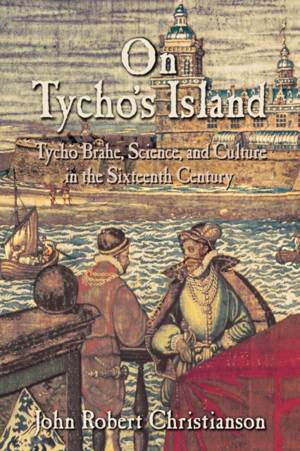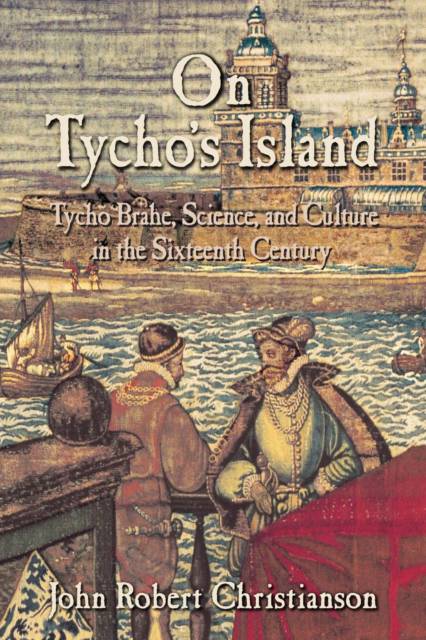
- Retrait gratuit dans votre magasin Club
- 7.000.000 titres dans notre catalogue
- Payer en toute sécurité
- Toujours un magasin près de chez vous
- Retrait gratuit dans votre magasin Club
- 7.000.0000 titres dans notre catalogue
- Payer en toute sécurité
- Toujours un magasin près de chez vous
On Tycho's Island
Tycho Brahe, Science, and Culture in the Sixteenth Century
John Robert Christianson
53,45 €
+ 106 points
Format
Description
Tycho Brahe (1546-1601), the premier patron-practitioner of science in sixteenth-century Europe, established a new role of scientist as administrator, active reformer, and natural philosopher. This book explores his wide range of activities, which encompass much more than his reputed role of astronomer. Christianson broadens this singular perspective by portraying him as Platonic philosopher, Paracelsian chemist, Ovidian poet, and devoted family man. From his private island in Denmark, Tycho Brahe used patronage, printing, friendship, and marriage to incorporate men and women skilled in science, technology, and the fine arts into his program of cosmic reform. This pioneering study includes capsule biographies of two dozen individuals, including Johannes Kepler, Willebrord Snel, Willem Blaeu, several artists, two bishops, a rabbi, and various technical specialists, all of whom helped shape the culture of the Scientific Revolution. Under Tycho's leadership, their teamwork achieved breakthroughs in astronomy, scientific method, and research organization that were essential to the birth of modern science. John Robert Christianson is research professor of history at Luther College in Decorah, Iowa, where he taught history for thirty years. In 1985, Christianson was awarded the Bronze Medal of the League of Finnish-American Societies and received the Alf Mjoen Prize in 1989. In 1995, he was dubbed Knight of the Royal Norweigian Order of Merit by King Harald II. Christianson is a former fellow of the American Council of Learned Societies and has held grants from the American Philosophical Society and the National Endowment of the Humanities, among others. He has traveled throughout Scandanavia and has written, edited, or translated several books about Scandanavia and Scandanavian-American topics, as well as articles in Scientific American, Isis, and other journals.
Spécifications
Parties prenantes
- Auteur(s) :
- Editeur:
Contenu
- Nombre de pages :
- 374
- Langue:
- Anglais
- Collection :
Caractéristiques
- EAN:
- 9780521008846
- Date de parution :
- 14-10-02
- Format:
- Livre broché
- Format numérique:
- Trade paperback (VS)
- Dimensions :
- 152 mm x 226 mm
- Poids :
- 521 g

Les avis
Nous publions uniquement les avis qui respectent les conditions requises. Consultez nos conditions pour les avis.






